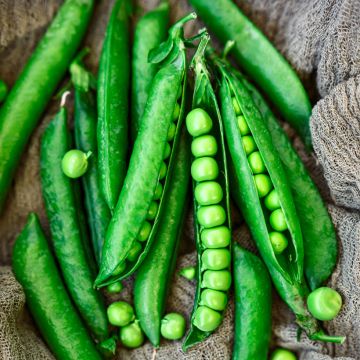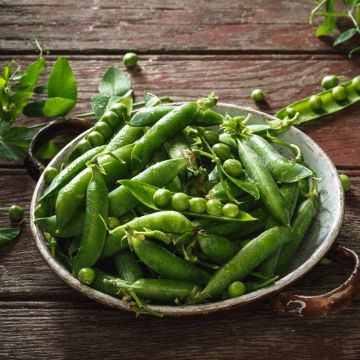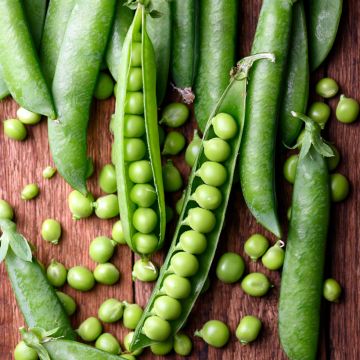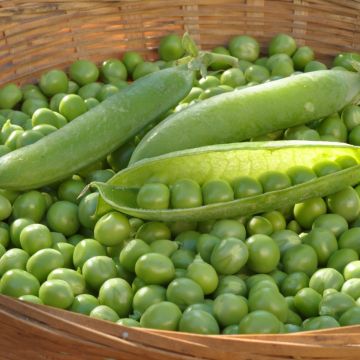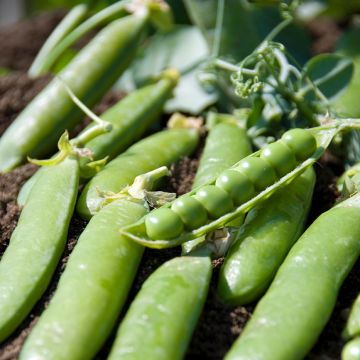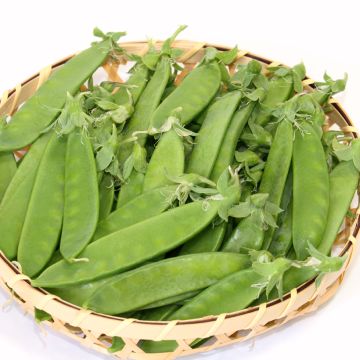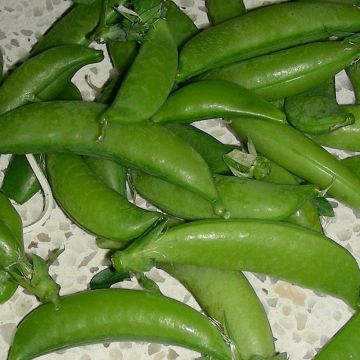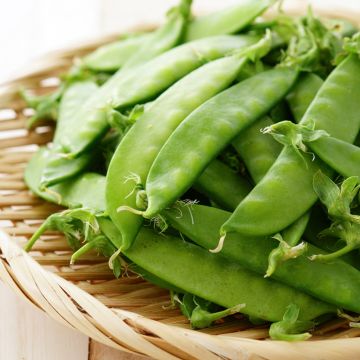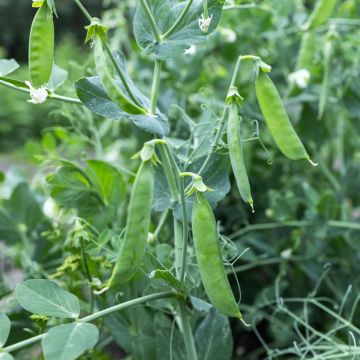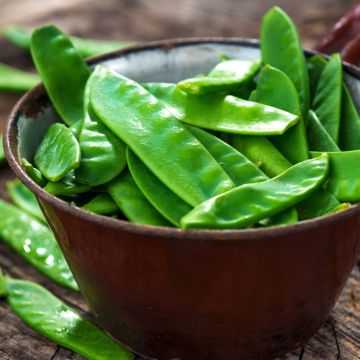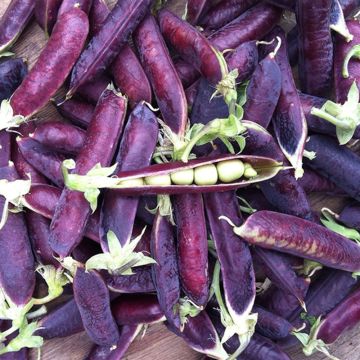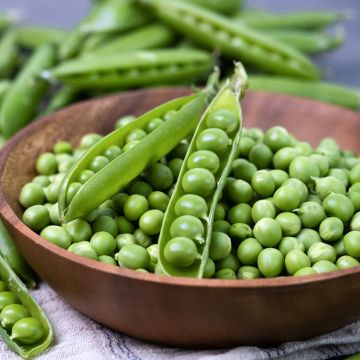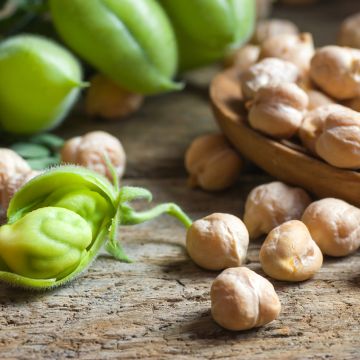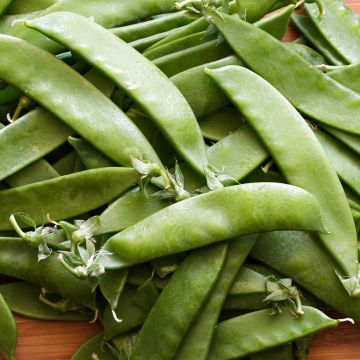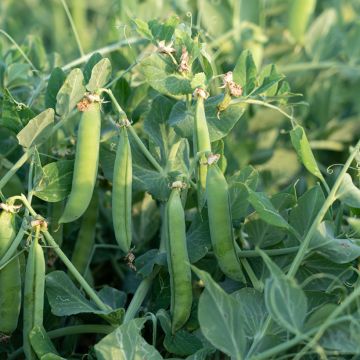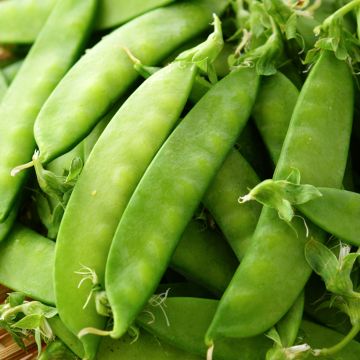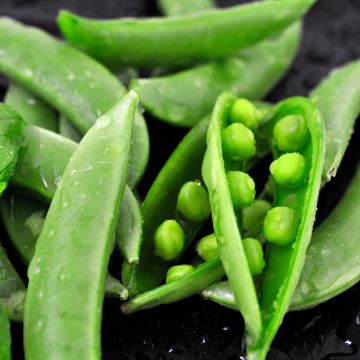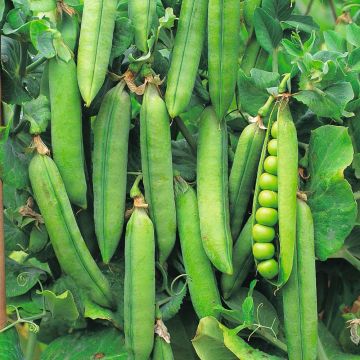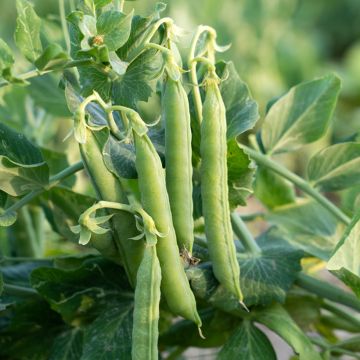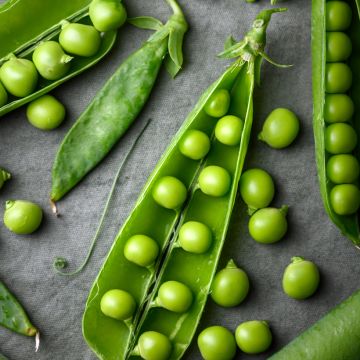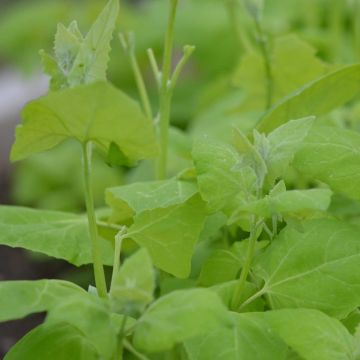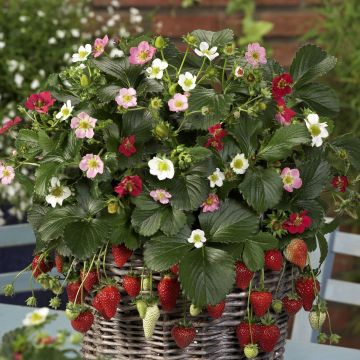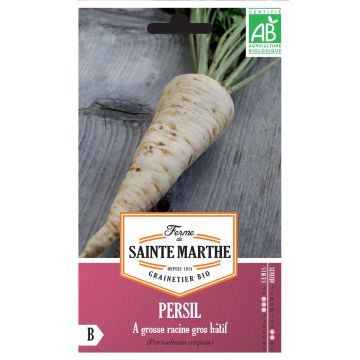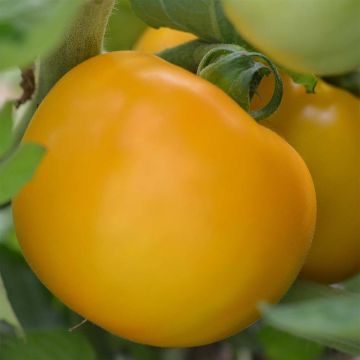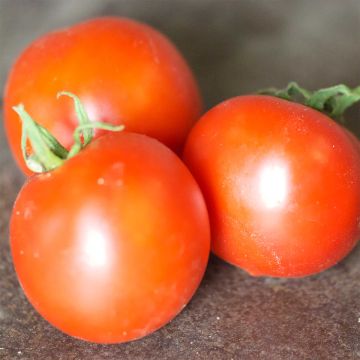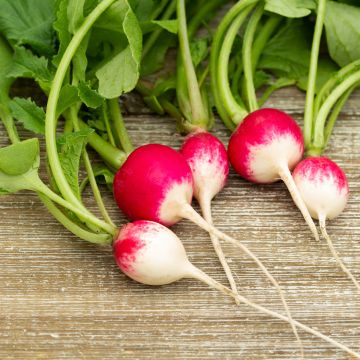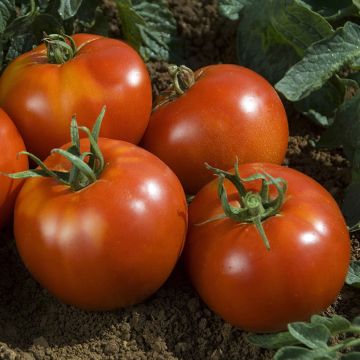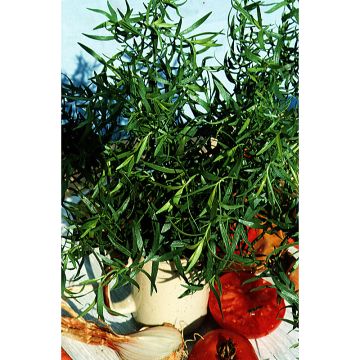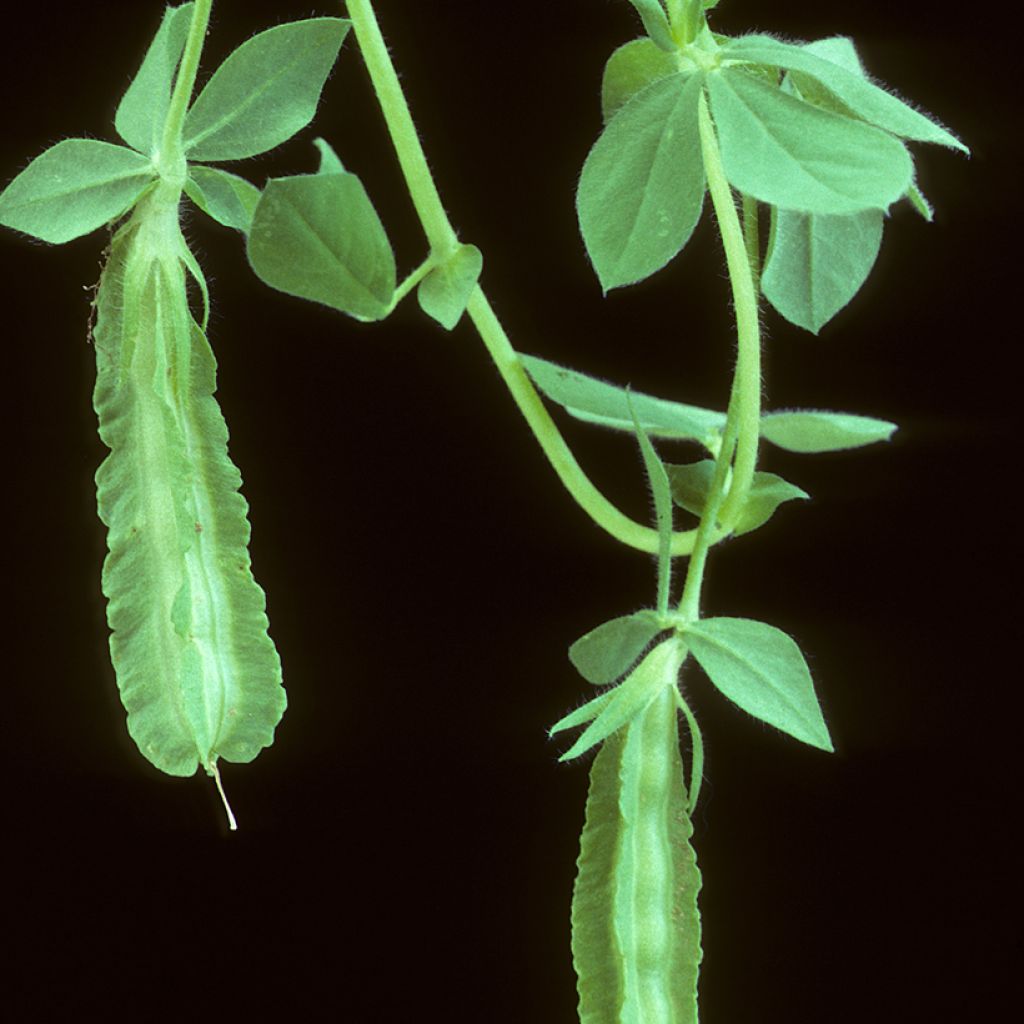

Lotus tetragonolobus - Asparagus Pea
Lotus tetragonolobus - Asparagus Pea
Lotus tetragonolobus purpureus
Asparagus pea, Winged lotus, Winged pea
Why not try an alternative variety in stock?
View all →This plant carries a 6 months recovery warranty
More information
We guarantee the quality of our plants for a full growing cycle, and will replace at our expense any plant that fails to recover under normal climatic and planting conditions.
Seed-only orders are dispatched by sealed envelope. The delivery charge for seed-only orders is €3.90.
Description
Lotus tetragonolobus, also known as asparagus pea, is a forgotten species that is closely related to peas and beans. It produces curious pods with four sides. Despite being little known, it is an old vegetable that was once harvested in the wild before being cultivated. It bears ornamental red flowers. Sow the seeds from March to May under shelter and from late May to June in beds. Harvest from July to the first frost.
This curious vegetable plant is native to Southern Europe and belongs to the large Fabaceae family. It develops a rosette of creeping stems. It bears beautiful red flowers, followed by the formation of curious pods with scalloped wings.
The pods are consumed whole when they are young and tender (2 to 3cm (1in) long) and are prepared like asparagus. When harvested at a more advanced stage (4 to 5cm (2in)), they should be shelled. The peas can then be cooked like garden peas.
It is grown in the same way as peas. It thrives in sunny, moist, well-drained and humus-bearing soil.
Harvest: it should be harvested regularly, approximately twice a week, until the first frost.
Storage: it can be stored for a few days in the vegetable compartment of a refrigerator. It can also be frozen after blanching in boiling water.
Gardener's tip: like all Fabaceae, it can fix atmospheric nitrogen in the soil, similar to green manure. This nitrogen supply benefits both nearby plants and those that will be planted subsequently in a crop rotation system.
Report an error about the product description
Harvest
Plant habit
Foliage
Botanical data
Lotus
tetragonolobus
purpureus
Fabaceae
Asparagus pea, Winged lotus, Winged pea
Cultivar or hybrid
Annual
Other Pea seeds
Planting and care
Sowing
The germination temperature is around 20°C (68°F), and it usually takes between 6 and 15 days for the seeds to sprout.
Sow from March to mid-May under cover, and from May to June directly in the ground.
Harvest from July until the first frost.
Sow directly in the ground. Choose a sunny area with slightly amended and loosened soil. Create furrows that are 5cm (2in) deep, with a distance of 60cm (24in) between rows. Sow the seeds every 5cm (2in). Water and keep the soil moist until germination.
Cultivation
It is a low-demanding vegetable that only requires light fertilisation. Additional inputs are therefore optional and depend on the initial fertility of your soil.
:
Seedlings
Care
Intended location
-
, onOrder confirmed
Reply from on Promesse de fleurs
Vegetable seeds
Haven't found what you were looking for?
Hardiness is the lowest winter temperature a plant can endure without suffering serious damage or even dying. However, hardiness is affected by location (a sheltered area, such as a patio), protection (winter cover) and soil type (hardiness is improved by well-drained soil).

Photo Sharing Terms & Conditions
In order to encourage gardeners to interact and share their experiences, Promesse de fleurs offers various media enabling content to be uploaded onto its Site - in particular via the ‘Photo sharing’ module.
The User agrees to refrain from:
- Posting any content that is illegal, prejudicial, insulting, racist, inciteful to hatred, revisionist, contrary to public decency, that infringes on privacy or on the privacy rights of third parties, in particular the publicity rights of persons and goods, intellectual property rights, or the right to privacy.
- Submitting content on behalf of a third party;
- Impersonate the identity of a third party and/or publish any personal information about a third party;
In general, the User undertakes to refrain from any unethical behaviour.
All Content (in particular text, comments, files, images, photos, videos, creative works, etc.), which may be subject to property or intellectual property rights, image or other private rights, shall remain the property of the User, subject to the limited rights granted by the terms of the licence granted by Promesse de fleurs as stated below. Users are at liberty to publish or not to publish such Content on the Site, notably via the ‘Photo Sharing’ facility, and accept that this Content shall be made public and freely accessible, notably on the Internet.
Users further acknowledge, undertake to have ,and guarantee that they hold all necessary rights and permissions to publish such material on the Site, in particular with regard to the legislation in force pertaining to any privacy, property, intellectual property, image, or contractual rights, or rights of any other nature. By publishing such Content on the Site, Users acknowledge accepting full liability as publishers of the Content within the meaning of the law, and grant Promesse de fleurs, free of charge, an inclusive, worldwide licence for the said Content for the entire duration of its publication, including all reproduction, representation, up/downloading, displaying, performing, transmission, and storage rights.
Users also grant permission for their name to be linked to the Content and accept that this link may not always be made available.
By engaging in posting material, Users consent to their Content becoming automatically accessible on the Internet, in particular on other sites and/or blogs and/or web pages of the Promesse de fleurs site, including in particular social pages and the Promesse de fleurs catalogue.
Users may secure the removal of entrusted content free of charge by issuing a simple request via our contact form.
The flowering period indicated on our website applies to countries and regions located in USDA zone 8 (France, the United Kingdom, Ireland, the Netherlands, etc.)
It will vary according to where you live:
- In zones 9 to 10 (Italy, Spain, Greece, etc.), flowering will occur about 2 to 4 weeks earlier.
- In zones 6 to 7 (Germany, Poland, Slovenia, and lower mountainous regions), flowering will be delayed by 2 to 3 weeks.
- In zone 5 (Central Europe, Scandinavia), blooming will be delayed by 3 to 5 weeks.
In temperate climates, pruning of spring-flowering shrubs (forsythia, spireas, etc.) should be done just after flowering.
Pruning of summer-flowering shrubs (Indian Lilac, Perovskia, etc.) can be done in winter or spring.
In cold regions as well as with frost-sensitive plants, avoid pruning too early when severe frosts may still occur.
The planting period indicated on our website applies to countries and regions located in USDA zone 8 (France, United Kingdom, Ireland, Netherlands).
It will vary according to where you live:
- In Mediterranean zones (Marseille, Madrid, Milan, etc.), autumn and winter are the best planting periods.
- In continental zones (Strasbourg, Munich, Vienna, etc.), delay planting by 2 to 3 weeks in spring and bring it forward by 2 to 4 weeks in autumn.
- In mountainous regions (the Alps, Pyrenees, Carpathians, etc.), it is best to plant in late spring (May-June) or late summer (August-September).
The harvesting period indicated on our website applies to countries and regions in USDA zone 8 (France, England, Ireland, the Netherlands).
In colder areas (Scandinavia, Poland, Austria...) fruit and vegetable harvests are likely to be delayed by 3-4 weeks.
In warmer areas (Italy, Spain, Greece, etc.), harvesting will probably take place earlier, depending on weather conditions.
The sowing periods indicated on our website apply to countries and regions within USDA Zone 8 (France, UK, Ireland, Netherlands).
In colder areas (Scandinavia, Poland, Austria...), delay any outdoor sowing by 3-4 weeks, or sow under glass.
In warmer climes (Italy, Spain, Greece, etc.), bring outdoor sowing forward by a few weeks.

































